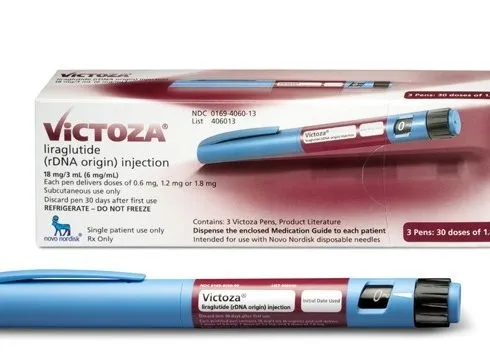The Food and Drugs Administration (FDA) approved Victoza (Liraglutida) injectable for pediatric use in people 10 years or more with type 2 diabetes.
This is the first drug without insulin since metformin was admitted as treatment for pediatric patients in 2000.
After several studies, Victaza has shown to improve blood sugar levels by acting as the peptide similar to glucagon (LPG-1), a hormone that releases sugar when the body needs it.
According to the FDA statement, Victoza helps to slow down, prevents excessive generation of glucose in the liver and helps the pancreas produce more insulin when necessary.
Of course, experts indicate, Victaz.
On the other hand, Victoza is administered to reduce the risk of cardiovascular disorders or stabilize them;although this last characteristics have not yet been proven in children.
The FDA indicates that the effectiveness of Victoza for patients with type 2 diabetes has been widely studied in controlled tests with adults and in a controlled trial with 134 pediatric patients of 10 years or more for 26 weeks.
The results of this analysis showed that around 64% of patients had a reduction in their A1C (HBA1C) hemoglobin (HBA1C) below 7% with Victaza.On the other hand, of those who took the placebo, only 37% reduced the A1C.
These results occurred even when patients took insulin at the same time.
HBA1C is a blood test that is performed routinely to assess how well a patient's diabetes is controlled.The lower the number, the better the disease control.
In the case of adult patients who took Victoza with insulin or other medicines to increase its production, they had a higher risk of hypoglycemia;In children, the risk of hypoglycemia increased regardless of whether they took other diabetes treatments.
Victoza's information includes a warning for patients and health professionals about the increase in risk to develop thyroid tumors.
For this reason, it is recommended that those who have a family history of thyroid medullary carcinoma should not use this medication.Similarly, patients with multiple endocrine neoplasm syndrome are suggested.
Other warnings is about pancreatitis;hypoglycemia when used with other medications such as insulin or sulfonylurea;kidney failure;Hypersensitivity, and agusta gallbladder disease.
The most common side effects are nausea, diarrhea, vomiting, decrease in appetite, indigestion and constipation.


